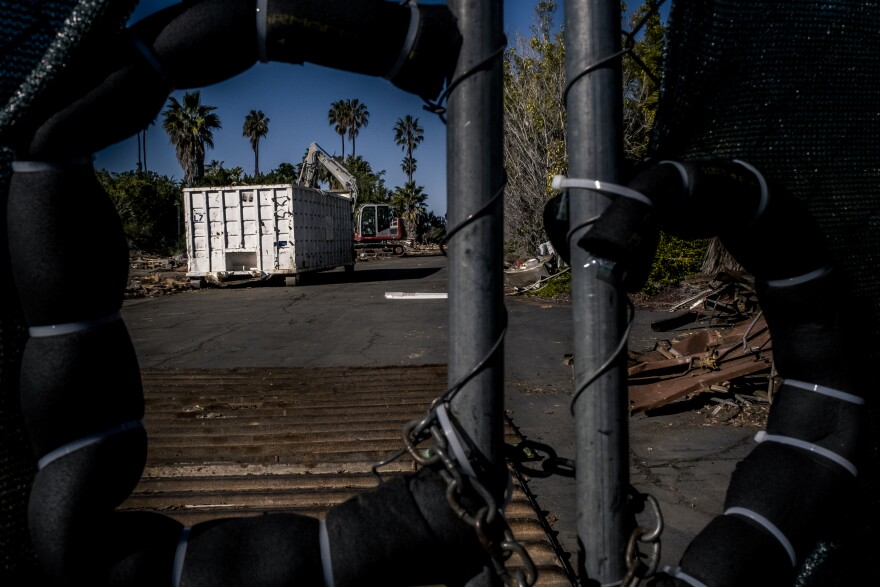Construction crews are tearing down a handful of remaining mobile homes on the De Anza Cove Peninsula as work progresses to transition the region into a recreational vehicle site.
The area was a focal point of a decades-long fight to restore public access to an area claimed by the 76-acre De Anza Cove mobile home park.
The city of San Diego finally paid nearly 300 residents about $32 million in 2014 to abandon the park, but clean-up did not get started until last year. Those residents lived on the land rent free for more than a decade after the park’s lease expired in 2003.
City officials finally signed a short-term lease with Northeast MB, LLC in 2019 to take over control of the site and clean it up. The company got the go ahead from the California Coastal Commission to begin tearing down the dilapidated mobile homes in the summer of 2022.
“When we took over the lease in 2019, there were 169 mobile homes on this property; now there are only a handful left to be removed,” said Jacob Gelfand, the chief executive officer of neighboring Campland on the Bay.
The process was not as easy as just coming in and leveling everything that was standing.
“Before we were able to start the removal and demolition processes we actually had to conduct asbestos and lead abatement of all the homes,” Gelfand said.
The company has promised to turn the mobile home park into an RV campground with 147 family friendly campsites.
Campland on the Bay officials also plan to improve a public bikeway that runs around the De Anza Cove peninsula, giving the public access to the land for the first time in decades.
San Diego Mayor Todd Gloria was on hand to see the demolition of the last few trailer homes on Wednesday.
He praised the progress and said he looked forward to the changes that will come with reopening the city- owned park land back to the public.
The future of the area is far from settled, however.
Environmentalists have long fought to expand wetlands around the peninsula and near Rose Creek, as a buffer against rising water levels linked to climate change.
Campland on the Bay has fought equally hard to preserve a business that creates camping opportunities for residents and visitors.
Gloria has proposed a mix of camping and wetlands in an effort to balance different uses.
“Ultimately that vision will be determined by the public in many public hearings,” Gloria said. “But what I’m recommending is a balance of uses that would include options like low-cost camping coupled with some restoration, expansion of our existing wetlands, that I think are very important for our climate action plan.”
An environmental impact review of Gloria’s vision is expected to be complete soon.











